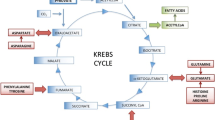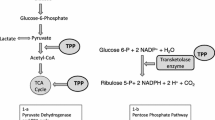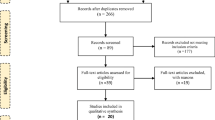Abstract
Patients suffering from congestive heart failure exhibit impaired myocardial energy production, myocyte calcium overload and increased oxidative stress. Nutritional factors known to be important for myocardial energy production, calcium homeostasis and the reduction of oxidative stress, such as thiamine, riboflavin, pyridoxine, L-carnitine, coenzyme Q10, creatine and taurine are reduced in this patient population. Furthermore, deficiencies of taurine, carnitine, and thiamine are established primary causes of dilated cardiomyopathy.
Studies in animals and limited trials in humans have shown that dietary replacement of some of these compounds in heart failure can significantly restore depleted levels and may result in improvement in myocardial structure and function as well as exercise capacity. Larger scale studies examining micronutrient depletion in heart failure patients, and the benefits of dietary replacement need to be performed. At the present time, it is our belief that these conditioned nutritional requirements, if unsatisfied, contribute to myocyte dysfunction and loss; thus, restoration of nutritional deficiencies should be part of the overall therapeutic strategy for patients with congestive heart failure.
Similar content being viewed by others
References
Bourassa MG, Gurne O, Bangdiwala SI, Ghali JK, Young JB, Rousseau M, Johnstone DE, Yusuf S. Natural history and patterns of current practice in heart failure. J Am Coll Card 1993;22Suppl A:14A–19A
Cowie MR, Mosterd A, Wood DA, Deckers JW, Poole-Wilson PA, Sutton CG, Grobbee DE, The epidemiology of heart failure. Eur Heart J 1997;18:208–25
Levy D, Kenchaiah S, Larson MG, Benjamin EJ, Kupka MJ, Ho KK, Murabito JM, Vasan RS. Long-term trends in the incidence of and survival with heart failure. N Engl J Med 2002;347:1397–402
Zang XQ, Musch TI, Zelis R, Cheung JY. Effects of impaired calcium homeostasis on contraction in postinfarction myocytes. J App Physiol 1999;86:943–50
Katz AM. The myocardium in congestive heart failure. Am J Cardiol 1989;63:12A–16A
Vogt AM, Kubler W. Heart failure: Is there an energy deficit contributing to contractile dysfunction? Basic Res Cardiol 1998;93:1–10
Clark AL, Sparrow JL, Coates, AJ. Muscle fatigue and dyspnea in chronic heart failure: Two sides of the same coin? Eur Heart J 1995;16:49–52
Freeman LM, Roubenoff R. The nutrition implications of cardiac cachexia. Nutr Rev 1994;52:340–7
Carr JG, Stevenson LW, Walden JA, Herber D. Prevalence and hemodynamic correlates of malnutrition in severe congestive heart failure secondary to ischemic or idiopathic dilated cardiomyopathy. Am J Cardiol 1989;63:709–13
Broqvist M, Arnqvist H, Dahlstrom U, Larsson J, Nylander E, Permert J. Nutritional assessment and muscle energy metabolism in severe chronic congestive heart failure: effects of long-term dietary supplementation. Eur Heart J 1994;15:1641–50
Sole MJ, Jeejeebhoy, KN. Conditioned nutritional requirements: Therapeutic relevance to heart failure. Herz 2002;27:174–9
Witte KKA, Clark AL, Cleland JGF. Chronic heart failure and micronutrients. J Am Coll Card 2001;37:1765–74
Isselbacher KJ, Braunwald E, Wilson JD, Martin JB, Fauci AS, Kasper DL, eds. Harrison’s Principles of Internal Medicine, 13th ed. New York: McGraw-Hill Inc.; 1994
Seligmann H, Halkin H, Rauchfleisch S, Kaufmann N, Motro M, Vered Z, Ezra D. Thiamine deficiency in patients with congestive heart failure receiving long-term furosemide therapy: a pilot study. Am J Med 1991;91:151–5
Zenuk C, Healey J, Donnelly J, Vaillancourt R, Almalki Y, Smith S. Thiamine deficiency in congestive heart failure patients receiving long-term furosemide therapy. Can J Clin Pharmacol 2003;10:184–8
Brady JA, Rock CL, Horneffer MR. Thiamin status, diuretic medications, and the management of congestive heart failure. J Am Diet Assoc 1995;95:541–4
Kwok T, Falconer-Smith JF, Potter JF, Ives DR. Thiamine status of elderly patients with cardiac failure. Age Ageing 1992;21:67–71
Pfitzenmeyer P, Guilland JC, d’Athis P, Petit-Marneier C, Gaudet M. Thiamine status of elderly patients with cardiac failure including the effects of supplements. Int J Vitam Nutr Res 1994;64:113–8
Yue QY, Beerman B, Lindstrom B, Nyquist O. No difference in blood thiamine diphosphate levels between Swedish Caucasians patients with congestive heart failure treated with furosemide and patients without heart failure. J Intern Med 1997;242:491–5
O’Rourke NP, Bunker VW, Thomas AJ, Finglas PM, Bailer AL, Clayton BE. Thaimine status of healthy and institutionalized elderly subjects: analysis of dietary intake and biochemical indices. Age Ageing 1990;19:325–9
Hardig L, Daae C, Dellborg M, Kontny F, Bohmer T. Reduced thiamine pyrophosphate, but not thiamine diphosphate, in erythrocytes in elderly patients with congestive heart failure treated with furosemide. J Intern Med 2000;247:597–600
Hanninen SA, Darling PB, Sole MJ, Barr A, Keith ME. The prevalence of thiamin deficiency in hospitalized patients with congestive heart failure. J Am Coll Card 2006:47:354–61
Mendoza CE, Rodriguez F, Rosenberg DG. Reversal of refractory congestive heart failure after thiamine supplementation: a case report and review of the literature. J Cardiovasc Pharmacol Ther 2003;8:313–6
Shimon I, Almog S, Vered Z, Seligmann H, Shefi M, Peleg E, Rosenthal T, Motoro M, Halkin H, Ezra D. Improved left ventricular function after thiamine supplementation in patients with congestive heart failure receiving long-term furosemide therapy. Am J Med 1995;98:485–90
Arsenian MA. Carnitine and its derivatives in cardiovascular disease. Prog Cardiovasc Dis 1997;40:265–86
Schonekess BO, Allard MF, Lopaschuk GD. Proprionyl l-carnitine improvement of hypertrophied heart function is accompanied by an increase in carbohydrate oxidation. Circ Res 1995;77:726–34
Kohlmeier M. Nutriient Metabolism. New York: Academic Press; 2003
Kendler, BS. Supplemental Conditionally Essential Nutrients in Cardiovascular Disease Therapy. J Cardiovas Nurs 2006;21:9–16
Engel AG. Carnitine deficiency syndromes and lipid storage myopathies. In: Engel AG, Banker BQ eds. Myology, basic and clinical Toronto: McGraw-Hill, 1986
Pepine CJ. The therapeutic potential of carnitine in cardiovascular disorders. Clin Ther 1991;13:2–18
Anand I, Chandrashekhan Y, De Giuli F, Pasini E, Mazzoletti A, Confortini R, Ferrar R. Acute and chronic effects of propionyl-L-carnitine on the hemodynamics, exercise capacity, and hormones in patients with congestive heart failure. Cardiovasc Drugs Ther 1998;12:291–9
Risos I. Three-year survival of patients with heart failure caused by dilated cardiomyopathy and L-carnitine administration. Am Heart J 2000;139:S120–3
Iliceto S, Scrutinio D, Bruzzi P, D’Ambrosio G, Boni L, Di Biase M, Biasco G, Hugenholtz PG, Rizzon P. Effects of L-carnitine adminstration of left ventricular remodeling after acute anterior myocardial infarction: the L-Carnitine Ecocardiografia Digitalizzata Infarto Miocardico (CEDIM) Trial. J Am Coll Cardiol 1995;26:380–7
Iyler R, Gupta A, Khan A, Hiremath S, Lokhandwala Y. Does left ventricular function improve with L-carnitine after acute myocardial infarction? J Postgrad Med 1999;45:38–41
Littarru GP. Energy and defense: Facts and perspectives on coenzyme Q10 in biology and medicine. Rome: Casa Editrice Scientifica Internazionale; 1995
Tomano Y, Hasegawa J, Seki T, Motegi K, Morishita N. Pharmokinetic study of deuterium-labelled coenzyme Q10 in man. Int J Clin Pharmacol Ther Toxicol 1986;24:536–41
Mohr D, Bowry VW, Stocker R. Dietary supplementation with coenzyme Q10 results in increased levels of ubiquinol-10 within circulating lipoproteins and increased resistance of human low-density lipoprotein to the initiation of lipid peroxidation. Biochim Biophys Acta 1992;1126:247–54
Ghirlanda G, Oradei A, Manto A, Lippa S, Uccisoli L, Caputo S, Greco AV, Littarru GP. Evidence of plasma COQ10-lowering effect by HMG-CoA reductase inhibitors: a double-blind, placebo-controlled study. J Clinc Pharmacol 1993;33:226–9
Folkers K, Langsjoen P, Willis R, Richardson P, Xia LJ, Ye CQ, Tamagama H. Lovastatin decreases coenzyme Q levels in humans. Proc Natl Acad Sci USA 1990;87:8931–4
Folkers K, Vadhanavikit S, Mortensen SA. Biochemical rationale and myocardial tissue data on effective therapy of cardiomyopathy with coenzyme Q10. Proc Natl Acad Sci USA 1985;82:4240–4
Soja AM, Mortensen SA. Treatment of congestive heart failure with coenzyme Q10 illuminated by meta-analysis of clinical trials. Mol Aspects Med 1997;18:S159–68
Morisco C, Trimarco B, Condorelli M. Effect of coenzyme Q10 therapy in patients with congestive heart failure: a long-term multicenter randomized study. Clin Invest 1993;71:S134–6
Sacher HL, Sacher ML, Landau SW, Kersten R, Dooley F, Sacher A, Sacher M, Dietrick K, Ichkhan K. The clinical and hemodynamic effects of coenzyme Q10 in congestive cardiomyopathy. Am J Ther 1997;4:66–72
Hofman-Bang C, Rehnqvist N, Swedberg K, Wiklund I, Astrom H. Coenzyme Q10 as an adjunctive in the treatment of chronic congestive heart failure. The Q10 Study Group. J Card Fail1995;1:101–7
Berman M, Erman A, Ben-Gal T, Dvir D, Georghiou GP, Stamler A, Vered Y, Vidne BA, Aravot D. Coenzyme Q10 in patients with end-stage heart failure awating cardiac transplantation: a randomized, placebo-controlled study. Clin Cardiol 2004;27:295–9
Permanetter B, Rossy W, Klein G, Weingartner F, Seidl KF, Blomer H. Ubiquinone (coenzyme Q10) in the long-term treatment of idiopathic dilated cardiomyopathy. Eur Heart J 1992;13:1528–33
Khatta M, Alexander BS, Krichten CM, Fisher ML, Freudenberger R, Robinson SW, Gottlieb SS. The effect of coenzyme Q10 in patients with congestive heart failure. Ann Intern Med 2000;132:636–40
Baggio E, Gandini R, Plancher AC, Passeri M, Carmosino G. Italian multicenter study on the safety and efficacy of coenzyme Q10 as adjunctive therapy in heart failure (interm analysis). The CoQ10 Drug Surveillance Investigators. Clin Invest 1993;71:S145–9
Wyss M, Walliman T. Creatine metabolism and the consequences of creatine depletion in muscle. Mol Cell Biochem 1994;133/134:51–6
Nascimben L, Ingwall JS, Pauletto P, Friedrich J, Gwathmey JK, Saks V, Pessina AC, Allen PD. Creatine kinase system in failing and nonfailing human myocardium. Circulation 1996;94:1894–901
Neubauer S, Horn M, Cramer M, Harre K, Newell JB, Peters W, Pabst T, Ertle G, Hahn D, Ingwall JS, Kochsiek K. Myocardial phosphocreatine-to-ATP ratio is a predictor of mortality in patients with dilated cardiomyopathy. Circulation 1997;96:2190–6
Casey A, Constantin-Teodosiu D, Howell S, Hultman E, Greenhaff PL. Creatine ingestion favorably affects performance and muscle metabolism during maximal exercise in humans. Am J Physiol 1996;271:E31–7
Gordon A, Hultman, E, Kaijser L. Creatine supplementation in chronic heart failure increases skeletal muscle creatine phosphate and muscle performance. Cardiovascular Res 1995;30:413–8
Azuma J, Sawamura A, Awata N. Usefulness of taurine in chronic congestive heart failure and its prospective application. Jpn Circ 1992;56:95–9
Schuller-Levis GB, Park E. Taurine: new implications for an old amino acid. FEMS Microbiol Lett 2003;226:195–202
Grimble RF, Jackson AA, Persaud C, Wride MJ, Delers F, Engler R. Cysteine and glycine supplementation modulate the metabolic response to tumor necrosis factor alpha in rats fed a low protein diet. J Nutrition 1992;122:2066–73
Pion PD, Kittleson MD, Rogers QR, Morris JG. Myocardial failure in cats associated with low plasma taurine: a reversible cardiomyopathy. Science 1987;237:764–8
Fascetti AL, Reed JR, Rogers QR, Backus RC. Taurine deficiency in dogs with dilated cardiomyopathy: 12 cases. J Am Vet Med Assoc 2003;223:1137–41
Schaffer SW, Allo S, Harada H, Mozaffari M. Potentation of myocardial ischemic injury by drug-induced taurine depletion. In: The biology of taurine. Huxtable RJ, Franconi F, Giotti A, eds. New York: Plenum Press; 1987:151–8
Crass MF 3rd, Lombardini JB. Loss of cardiac muscle taurine after acute left ventricular ischemia. Life Sci 1977;21:951–8
Kramer JH, Chovan JP, Schaffer SW. The effect of taurine on calcium paradox and ischemic heart failure. Am J Physiol 1981;240:H238–46
Azari J, Brumbaugh P, Barbeau A, Huxtable R. Taurine decreases lesion severity in the hearts of cardiomyopathic Syrian hamsters. Can J Neurol Sci 1980;7:435–40
Takihara K, Azuma J, Awata N. Beneficial effect of taurine in rabbits with chronic congestive heart failure. Am Heart J 1986;112:1278–84
Oudit GY, Trivieri MG, Khaper N, Hussain T, Wilson GJ, Liu P, Sole MJ, Backx PH. Taurine supplementation reduces oxidative stress and improves cardiovascular function in an iron overload murine model. Circulation 2004;109:1877–85
Ball AM, Sole MJ. Oxidative stress and the pathogenesis of heart failure. Cardiol Clin 1998;16:665–75
Singh N, Dhalla AK, Seneviratne C, Singal PK. Oxidative stress and heart failure. Mol Cell Biochem 1995;147:77–81
Li RK, Sole MJ, Mickle DA, Schimmer J, Goldstein D. Vitamin E and oxidative stress in the heart of the cardiomyopathic Syrian hamster. Free Rad Biol Med 1997;24:252–8
Keith M, Geranmayegan A, Sole MJ, Kurian R, Robinson A, Omran AS, Jeejeebhoy KN. Increased oxidative stress in patients with congestive heart failure. J Am Coll Cardiol 1998;31:1352–6
Ghatak A, Brar MJ, Agarwal A, Goel N, Rastogi AK, Vaish AK, Sircar AR, Chandra M. Oxy free radical system in heart failure and therapeutic role of vitamin E. Int J Cardiol 1996;57:119–27
Keith ME, Jeejeebhoy KN, Langer A, Kurian R, Barr A, O’Kelly B, Sole MJ. A controlled clinical trial of vitamin E supplementation in patients with congestive heart failure. Am J Clin Nutr 2001;73:219–24
The Heart Outcomes Prevention Evaluation Study Investigators. Vitamin E supplementation and cardiovascular events in high-risk patients. N Engl J Med 2000;342:154–60
Virtamo J, Rapola JM, Ripatti S, Heinonen OP, Taylor PR, Albanes D, Huttunen JK. Effect of vitamin E and beta carotene on the incidence of primary nonfatal myocardial infarction and fatal coronary heart disease. Arch Intern Med 1998;158:668–75
Keith ME, Ball A, Jeejeebhoy KN, Kurian R, Butany J, Dawood F, Wen WH, Madapallimattam A, Sole MJ. Conditioned nutritional deficiencies in the cardiomyopathic hamster heart. Can J Cardiol 2001;17:449–58
Jeejeebhoy F, Keith M, Freeman M, Barr A, McCall M, Kurian R, Mazer D, Errett L. Nutritional supplementation with MyoVive repletes essential cardiac myocyte nutrients and reduces leftventricular size in patients with left ventricular dysfunction. Am Heart J 2002;143:1092–100
Witte KK, Nikitin NP, Parker AC, von Haehling S, Volk HD, Anker SD, Clark AL, Cleland JG. The effect of micronutrient supplementation on quality-of-life and left ventricular function in elderly patients with chronic heart failure. Eur Heart J 2005;26:2238–44
Hunt SA, American College of Cardiology, American Heart Association Task Force on Practice Guidelines. ACC/AHA 2005 guideline update for the diagnosis andmanagement of chronic heart failure in the adult: a report of the American College of Cardiology/American Heart Association Task Force on Practice Guidelines (Writing Committee to update the 2001 Guidelines for the Evaluation and Management of Heart Failure). J Am Coll Cardiol 2005;46:e1–82
Liu P, Arnold JM, Belenkie I, Demers C, Dorian P, Gianetti N, Haddad H, Howlett J, Ignnazewski A, Jong P, McKelvie R, Moe G., Parker JD et al. for the Canadian Cardiovascular Society. Can J Cardiol 2003;19:347–56
Author information
Authors and Affiliations
Corresponding author
Rights and permissions
About this article
Cite this article
Allard, M.L., Jeejeebhoy, K.N. & Sole, M.J. The management of conditioned nutritional requirements in heart failure. Heart Fail Rev 11, 75–82 (2006). https://doi.org/10.1007/s10741-006-9195-3
Issue Date:
DOI: https://doi.org/10.1007/s10741-006-9195-3




